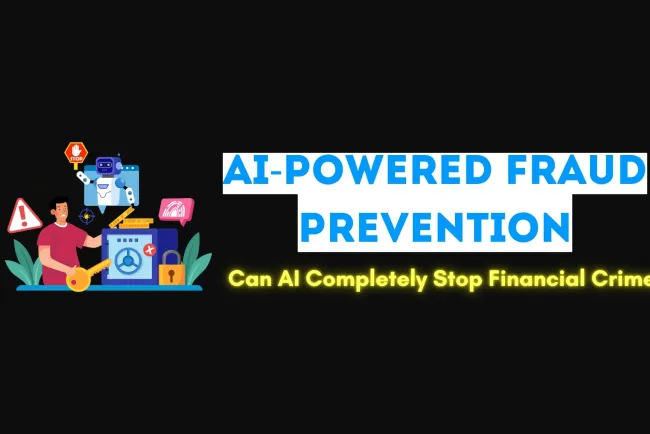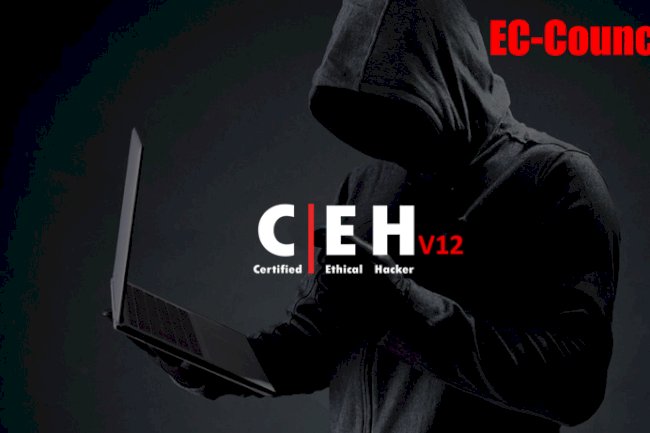Cybersecurity Careers for Non-Technical People – A Beginner’s Guide
Cybersecurity is not just for IT professionals—non-technical individuals can also learn and apply cybersecurity skills to protect personal and business data. Cyber threats like phishing, malware, and social engineering target everyone, making cybersecurity awareness essential. Non-technical professionals can start by learning basic security concepts, enrolling in beginner-friendly courses, and obtaining certifications. Cybersecurity roles such as risk analysts, compliance officers, and security trainers do not require technical expertise. WebAsha Technologies offers specialized cybersecurity training tailored for non-technical learners, ensuring that anyone can develop security awareness and skills to advance their careers or enhance workplace security.

Table of Contents
- Introduction
- Can a Non-Technical Person Learn Cybersecurity?
- How Can a Non-Technical Person Start Learning Cybersecurity?
- Best Cybersecurity Career Paths for Non-Technical Professionals
- Why Choose WebAsha Technologies for Cybersecurity Training?
- Conclusions
- FAQs
Introduction
Cybersecurity is often viewed as a complex field requiring deep technical expertise, coding skills, and networking knowledge. However, cybersecurity is not just for IT professionals—it is a necessity for everyone. With increasing cyber threats, organizations need employees at all levels to have a basic understanding of security.
The question is: Can a non-technical person learn cybersecurity? The answer is a resounding yes! Many cybersecurity roles and concepts do not require advanced technical skills. With the right learning path, even individuals from finance, HR, healthcare, law, and business backgrounds can develop cybersecurity expertise.
This blog will provide a detailed guide on how non-technical individuals can enter and excel in cybersecurity, the best ways to learn, and how WebAsha Technologies can help you become cybersecurity-aware.
Why Cybersecurity is Important for Non-Technical Professionals?
Cyber threats do not just target IT teams—hackers exploit human errors to gain access to sensitive data. Employees in various roles handle confidential business information, making them primary targets for cybercriminals.
Common Cybersecurity Risks for Non-Technical Professionals
| Cyber Threat | Impact | Example |
|---|---|---|
| Phishing Attacks | Stolen credentials, financial fraud | Fake emails trick employees into sharing passwords |
| Weak Passwords | Easy account breaches | Using “123456” as a password makes hacking simple |
| Malware & Ransomware | Data loss, system lockdown | Downloading an infected attachment encrypts all files |
| Social Engineering | Manipulation into revealing sensitive data | A scammer posing as IT support asks for login credentials |
| Unsafe Browsing | Exposure to cyber threats | Clicking on malicious ads installs spyware on the device |
By understanding these risks, non-technical professionals can contribute to security efforts and protect their organizations from cyber threats.
Can a Non-Technical Person Learn Cybersecurity?
Absolutely! Learning cybersecurity does not require a coding background. Many security roles and concepts focus on policy implementation, risk assessment, and security awareness—skills that anyone can learn with the right approach.
Key Cybersecurity Areas That Non-Technical Individuals Can Learn
- Cyber Hygiene & Awareness – Recognizing cyber threats and best security practices.
- Security Policies & Compliance – Understanding data protection laws and company policies.
- Risk Management – Assessing vulnerabilities and implementing security measures.
- Incident Response – Knowing what to do in case of a cyber attack.
- Ethical Hacking (Basic Level) – Learning how hackers operate to prevent attacks.
- Privacy & Data Protection – Safeguarding personal and organizational data.
With structured training, non-technical individuals can build cybersecurity expertise without technical complexity.
How Can a Non-Technical Person Start Learning Cybersecurity?
Here’s a step-by-step guide to help beginners enter the field of cybersecurity:
Step 1: Start with Cybersecurity Awareness Training
- Learn basic security principles (password management, phishing prevention, malware protection).
- Take free cybersecurity awareness courses from WebAsha Technologies or other reputable platforms.
- Follow cybersecurity news to understand real-world attacks.
Step 2: Enroll in a Beginner-Friendly Cybersecurity Course
A structured cybersecurity course for non-technical individuals provides hands-on training and practical knowledge. WebAsha Technologies offers specialized training with:
- Easy-to-understand lessons.
- Real-life case studies.
- Practical exercises to reinforce learning.
Step 3: Develop Essential Cybersecurity Skills
| Skill | Why It’s Important? | How to Learn? |
|---|---|---|
| Security Awareness | Prevents phishing and social engineering attacks | Online courses, company training |
| Incident Handling | Responding to security breaches | Hands-on labs, simulations |
| Risk Management | Assessing and mitigating cyber risks | Cybersecurity frameworks, case studies |
| Compliance & Policies | Ensures legal data protection | Learning GDPR, ISO 27001, NIST |
| Ethical Hacking Basics | Understanding cyber threats | Beginner-friendly ethical hacking tutorials |
Step 4: Gain Practical Experience
- Apply security best practices in daily activities.
- Join cybersecurity forums like Cyber Security Awareness Groups.
- Participate in cybersecurity workshops offered by WebAsha Technologies.
Step 5: Get Certified
Cybersecurity certifications help validate skills. Some beginner-friendly options include:
- Certified in Cybersecurity (CC) – ISC²
- CompTIA Security+
- Certified Ethical Hacker (CEH) – Entry Level
- WebAsha Technologies Cybersecurity Fundamentals Certification
These certifications do not require a technical background and are excellent for non-technical professionals entering cybersecurity.
Best Cybersecurity Career Paths for Non-Technical Professionals
Even without a technical background, there are various cybersecurity roles that suit non-technical individuals:
| Job Role | Description | Technical Requirement |
|---|---|---|
| Security Awareness Trainer | Educates employees on cyber threats | No technical skills required |
| Risk Analyst | Identifies potential security risks | Basic understanding of security policies |
| Compliance & Governance Specialist | Ensures businesses follow security laws | No coding required |
| Cybersecurity Consultant | Advises companies on security strategies | Basic security knowledge |
| Incident Response Coordinator | Manages security breaches | Communication & analytical skills |
Many of these roles focus on risk assessment, compliance, security awareness, and policy implementation rather than technical configurations.
Why Choose WebAsha Technologies for Cybersecurity Training?
WebAsha Technologies offers comprehensive cybersecurity training for non-technical professionals.
Why WebAsha?
Beginner-Friendly Learning – No prior IT knowledge required.
Hands-On Training – Practical, real-world cybersecurity applications.
Industry Experts as Trainers – Learn from cybersecurity professionals.
Flexible Learning Options – Online and offline classes.
Recognized Certification – Boosts career opportunities in cybersecurity.
With WebAsha Technologies, anyone can learn cybersecurity and build a secure future!
Conclusion
Cybersecurity is not just for IT professionals—it is for everyone. A non-technical person can absolutely learn cybersecurity by starting with awareness training, structured courses, and hands-on practice. With the right resources and guidance, non-technical professionals can build rewarding careers in cybersecurity or apply security knowledge in their current roles.
WebAsha Technologies offers beginner-friendly cybersecurity training, making it easier for non-technical individuals to understand, implement, and excel in cybersecurity. Start your cybersecurity journey today and become part of a safer digital world!
FAQs
Can a non-technical person learn cybersecurity?
Yes, cybersecurity is accessible to non-technical individuals through awareness training and beginner-friendly courses.
Is cybersecurity only for IT professionals?
No, cybersecurity applies to everyone. Many roles focus on policy, risk assessment, and security awareness.
Do I need coding skills to learn cybersecurity?
No, coding is not required for many cybersecurity areas, such as risk management, compliance, and security awareness.
What cybersecurity skills can a non-technical person learn?
Non-technical individuals can learn password security, phishing awareness, incident response, compliance, and risk management.
What are some beginner-friendly cybersecurity certifications?
Some beginner certifications include Certified in Cybersecurity (CC), CompTIA Security+, and WebAsha Cybersecurity Fundamentals Certification.
Can cybersecurity training help my career in non-IT fields?
Yes, cybersecurity skills are valuable in finance, HR, law, healthcare, and management, enhancing job prospects.
How long does it take to learn basic cybersecurity?
Basic cybersecurity concepts can be learned in a few weeks, while deeper knowledge takes a few months with structured training.
What are the easiest cybersecurity concepts for non-tech learners?
Phishing awareness, password management, social engineering defense, and data privacy are easy to learn.
How can I protect myself from cyber threats?
Use strong passwords, enable two-factor authentication, avoid phishing emails, and keep software updated.
Can I get a cybersecurity job without an IT degree?
Yes, many cybersecurity jobs focus on compliance, security training, and risk management, which do not require an IT degree.
What cybersecurity jobs are available for non-technical people?
Non-technical roles include Security Awareness Trainer, Risk Analyst, Compliance Officer, and Cybersecurity Consultant.
Are there cybersecurity courses specifically for beginners?
Yes, WebAsha Technologies offers beginner-friendly cybersecurity courses with practical, easy-to-understand lessons.
What are common cyber threats I should know about?
Phishing, malware, ransomware, weak passwords, and social engineering are major threats to watch out for.
How do I recognize phishing emails?
Look for suspicious senders, urgent language, unknown links, and poor grammar in emails.
Is it possible to work in cybersecurity part-time?
Yes, many cybersecurity roles, like security awareness training, can be pursued part-time.
Do I need math skills for cybersecurity?
No, most cybersecurity roles do not require advanced math skills.
Can I learn cybersecurity for free?
Basic cybersecurity concepts can be learned for free, but structured courses like WebAsha Technologies’ training provide deeper knowledge.
What is the best way to start learning cybersecurity?
Start with cybersecurity awareness training, then enroll in a beginner-friendly course for hands-on experience.
What industries benefit from cybersecurity knowledge?
Banking, healthcare, HR, law, business, and education benefit from cybersecurity awareness.
How can cybersecurity help protect my personal data?
By using strong passwords, enabling multi-factor authentication, avoiding suspicious links, and securing online accounts.
Does cybersecurity training require technical tools?
No, many cybersecurity concepts focus on awareness and best practices rather than technical tools.
Can I specialize in cybersecurity without technical knowledge?
Yes, areas like risk management, compliance, and security policy development do not require deep technical skills.
What is the role of a compliance officer in cybersecurity?
A compliance officer ensures a company follows security laws and data protection regulations.
Why is password security important?
Weak passwords make it easy for hackers to access accounts, leading to data breaches and identity theft.
How does social engineering trick people into revealing information?
Attackers manipulate individuals into sharing sensitive information through psychological deception.
What are the benefits of learning cybersecurity as a non-tech person?
It enhances career growth, personal security, and the ability to protect organizations from cyber threats.
How can I stay updated on cybersecurity trends?
Follow cybersecurity blogs, news, and take refresher courses like those offered by WebAsha Technologies.
Does WebAsha Technologies provide cybersecurity certification?
Yes, WebAsha Technologies provides recognized cybersecurity certification for beginners.
How do I enroll in a cybersecurity course at WebAsha Technologies?
Visit the WebAsha Technologies website or contact their team to enroll in a cybersecurity training program today!














![Top 10 Ethical Hackers in the World [2025]](https://www.webasha.com/blog/uploads/images/202408/image_100x75_66c2f983c207b.webp)








